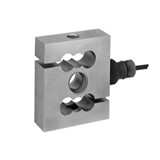Read 'Energy and resources: new government and Australia's industries - Part 1'
Read 'Workplace relations: new government and Australia's industries - Part 2'
Infrastructure investment
Both Labor and the Coalition pledged support for many substantial infrastructure projects across a nation highly dependent on road and rail transport. The largest item on the agenda is the flood- and accident-prone Bruce Highway in north Queensland.
Significant road investment is expected under the Coalition, including $6.7 billion over 10 years for the Bruce Highway, $5.6 billion for the Pacific Highway and $1.5 billion for Sydney's WestConnex project to link the M4 and M5 motorways, with an extra link to Sydney's central business district to be created. Other funding includes $1 billion for the Gateway Motorway in Queensland, an unconfirmed amount for the F3/M2 link in New South Wales, $500 million for the South Road in South Australia and $400 million for the Midland Highway in Tasmania.
Both parties proposed investment in a high-speed rail network across Australia. Despite mutual agreement on the economic benefits of high-speed rail, public funding will be difficult to attract, with construction forecast to take several decades. In terms of rail projects, the Coalition has maintained that state and regional urban rail systems are not the responsibility of the Federal government, but rather individual state governments.
Overall, IBISWorld forecasts capital expenditure by the public sector to increase at an annualised 5.2 per cent over the three years through 2016-17 under the Abbott government. Another fiercely debated topic of the 2013 Federal Election was the NBN. While download speeds, costs, technology and design were key differences between Labor's and the Coalition's planned broadband networks, both parties agreed that broadband speed and availability could be greatly improved across Australia.
Following the election, the NBN rollout will continue under the Coalition government. However, plans to further expand the NBN have been placed on hold until a 12-month review is conducted. Minister for Communications Malcolm Turnbull has already contacted major telecommunications companies to discuss future changes to the network. In addition, three separate reviews and forensic audits have been launched into NBN Co, casting doubt on the feasibility of Labor's plans for the NBN.
Labor's NBN has been in the works since 2011, with rollouts commencing in key metropolitan and rural areas. Full completion was scheduled for 2021. Under Labor's plans, the NBN was estimated to cost $44.1 billion and would replace the existing copper network system through a series of fibre-to the premises upgrades. The scheme was anticipated to allow potential download speeds of 1 gigabit per second, with full utilisation of fibre to connect homes, businesses and rural properties to network cabinets. Labor's NBN would have been distributed through universal pricing under a government-owned monopoly wholesale network.
In contrast, the Coalition vehemently promoted its own version of the NBN following a spate of rollout difficulties and connection issues suffered under Labor. Under the Coalition's proposal, the NBN is estimated to cost just $29.5 billion and take two years less than it would have under Labor.
Maximum speeds of 100 megabits per second are anticipated through utilisation of a fibre-to-the-node approach, connecting fibre to neighbourhood cabinets and using copper to connect homes and businesses. Under the Coalition, competition will be encouraged, with wholesale prices determined by the ACCC.
Reviews into the banning of Huawei and NBN Co's purchase of Telstra's copper wire network are expected to significantly affect the development of Australia's broadband overhaul.
- Suppliers
- New to IndustrySearch? Book a Demo
- Advertise with us
- Login
- Email Marketing
- Buyers
- Get Quotes
- Articles & Ideas
- Login
- Subscribe to newsletter
- My Details
- Get Quotes
- Automation & Control
- Automotive Workshop Equipment
- Commercial Cleaning Equipment & Supplies
- Construction Equipment & Heavy Machinery
- Conveyor Systems & Components
- Electrical & Power Generation Equipment
- Electronic Components
- Farming & Agriculture
- Food & Beverage Processing
- Forklifts & Forklift Attachments
- Hydraulic & Pneumatic Equipment
- Industrial Materials, Tools & Components
- Industrial Pumps
- IT Hardware & Industrial Computing
- IT Software & Applications
- Laboratory Equipment & Instruments
- Manufacturing & Industrial Equipment
- Material Handling & Lifting Equipment
- Metalworking & Machining
- Mining Equipment & Machinery
- Packaging & Labelling Machinery
- Pallet Handling Equipment
- Personal Protective Equipment
- Security & Surveillance
- Test & Measurement
- Transport & Logistic Equipment
- Warehouse Storage, Shelving & Racking
- Waste Treatment & Environmental Management
- Welding Machines & Accessories
- Woodworking & Joinery Machines
- Workplace Equipment
- Workplace Safety Equipment
- Get Quotes
- Automation & Control
- Automotive Workshop Equipment
- Commercial Cleaning Equipment & Supplies
- Construction Equipment & Heavy Machinery
- Conveyor Systems & Components
- Electrical & Power Generation Equipment
- Electronic Components
- Farming & Agriculture
- Food & Beverage Processing
- Forklifts & Forklift Attachments
- Hydraulic & Pneumatic Equipment
- Industrial Materials, Tools & Components
- Industrial Pumps
- IT Hardware & Industrial Computing
- IT Software & Applications
- Laboratory Equipment & Instruments
- Manufacturing & Industrial Equipment
- Material Handling & Lifting Equipment
- Metalworking & Machining
- Mining Equipment & Machinery
- Packaging & Labelling Machinery
- Pallet Handling Equipment
- Personal Protective Equipment
- Security & Surveillance
- Test & Measurement
- Transport & Logistic Equipment
- Warehouse Storage, Shelving & Racking
- Waste Treatment & Environmental Management
- Welding Machines & Accessories
- Woodworking & Joinery Machines
- Workplace Equipment
- Workplace Safety Equipment
Trusted by 1,000,000+ Australian industrial buyers
Buyers
- Discover products & solutions
- Login
- Subscribe To Newsletter
- Browse All Products
- Read Articles
Suppliers
Advertise
- Promote your products & solutions
- New to IndustrySearch? Book a Demo
- Login / Forgot Password
- Advertise Your Products
- Success Stories
- Email Marketing
- Suppliers
- Advertise with us
- Login
- Email Marketing
- Buyers
- Get Quotes
- Articles & Ideas
- Login
- Subscribe to newsletter
- My Details
Get Quotes
- Automation & Control
- Automotive Workshop Equipment
- Commercial Cleaning Equipment & Supplies
- Construction Equipment & Heavy Machinery
- Conveyor Systems & Components
- Electrical & Power Generation Equipment
- Electronic Components
- Farming & Agriculture
- Food & Beverage Processing
- Forklifts & Forklift Attachments
- Hydraulic & Pneumatic Equipment
- Industrial Materials, Tools & Components
- Industrial Pumps
- IT Hardware & Industrial Computing
- IT Software & Applications
- Laboratory Equipment & Instruments
- Manufacturing & Industrial Equipment
- Material Handling & Lifting Equipment
- Metalworking & Machining
- Mining Equipment & Machinery
- Packaging & Labelling Machinery
- Pallet Handling Equipment
- Personal Protective Equipment
- Security & Surveillance
- Test & Measurement
- Transport & Logistic Equipment
- Warehouse Storage, Shelving & Racking
- Waste Treatment & Environmental Management
- Welding Machines & Accessories
- Woodworking & Joinery Machines
- Workplace Equipment
- Workplace Safety Equipment
Get Quotes
- Automation & Control
- Automotive Workshop Equipment
- Commercial Cleaning Equipment & Supplies
- Construction Equipment & Heavy Machinery
- Conveyor Systems & Components
- Electrical & Power Generation Equipment
- Electronic Components
- Farming & Agriculture
- Food & Beverage Processing
- Forklifts & Forklift Attachments
- Hydraulic & Pneumatic Equipment
- Industrial Materials, Tools & Components
- Industrial Pumps
- IT Hardware & Industrial Computing
- IT Software & Applications
- Laboratory Equipment & Instruments
- Manufacturing & Industrial Equipment
- Material Handling & Lifting Equipment
- Metalworking & Machining
- Mining Equipment & Machinery
- Packaging & Labelling Machinery
- Pallet Handling Equipment
- Personal Protective Equipment
- Security & Surveillance
- Test & Measurement
- Transport & Logistic Equipment
- Warehouse Storage, Shelving & Racking
- Waste Treatment & Environmental Management
- Welding Machines & Accessories
- Woodworking & Joinery Machines
- Workplace Equipment
- Workplace Safety Equipment
Trusted by 1,000,000+ Australian industrial buyers












